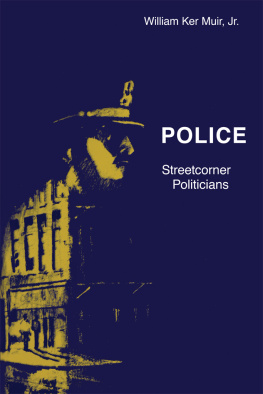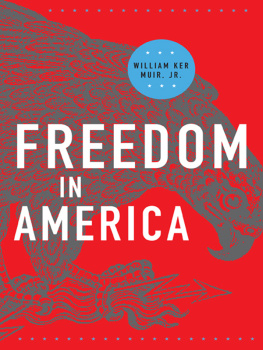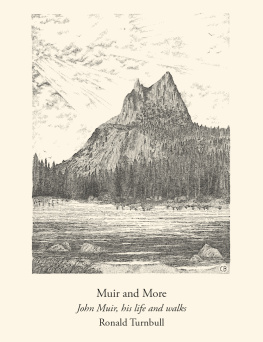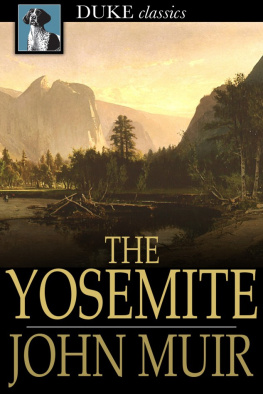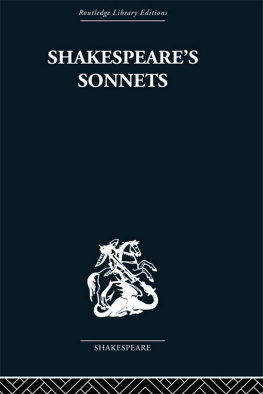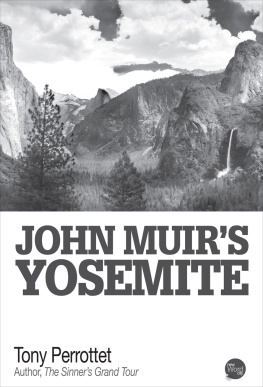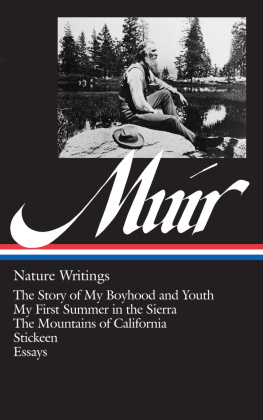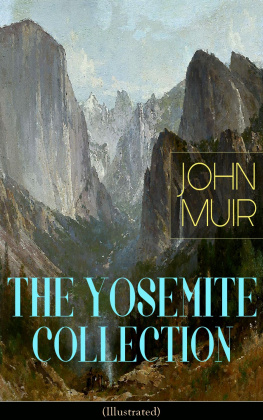The University of Chicago Press, Chicago 60637
The University of Chicago Press, Ltd., London
1977 by The University of Chicago
All rights reserved. Published 1977
Paperback edition 1979
Printed in the United States of America
09 08 07 06 05 04 9 10 11 12
ISBN 978-0-226-21866-3 (ebook)
Library of Congress Cataloging in Publication Data
Muir, William K.
Police: streetcorner politicians.
Bibliography: p.
1. Police. 2. Power (Social sciences) 1. Title.
HV7921.M84 363.2 76-8085
ISBN 0-226-54633-0 (paper)

The paper used in this publication meets the minimum requirements of the American National Standard for Information SciencesPermanence of Paper for Printed Library Materials, ANSI Z39.48-1992.
POLICE
STREETCORNER POLITICIANS
WILLIAM KER MUIR, JR.
THE UNIVERSITY OF CHICAGO PRESS
CHICAGO LONDON
To Pauli, Kerry, and Hattie with Love and to the Chief with Respect
[A]fter Hannibal had defeated the Romans at Cannae, whilst all Italy rose up in consequence of this defeat, Capua still remained in a state of insubordination, because of the hatred that existed between the people and the Senate. Pacovius Calanus being at that time one of the supreme magistrates, and foreseeing the dangers that would result from the disorders in that city, resolved by means of the authority of his office to try and reconcile the people and the Senate; with this purpose he caused the Senate to be assembled, and stated to them the animosity which the people felt towards them, and the danger to which they were exposed of being massacred by them if the city were given up to Hannibal in consequence of the defeat of the Romans. He then added, that, if they would leave it to him to manage the matter, he would find means of restoring harmony between the two orders; but that, for this purpose, he would shut them up in their palace, and by seemingly putting them into the power of the people he would save them. The Senators yielded to his suggestion: whereupon Pacovius shut the Senate up in their palace, and then assembled the people and said to them that the time had arrived when they might subdue the pride of the nobles and revenge themselves for the injuries received at their hands, and that he held the Senate shut up in their palace for this purpose. But believing that they would be unwilling to allow the city to be without a government, it would be necessary, before killing the old Senators, to choose new ones; and that therefore he had put the names of all the Senators into an urn, and would proceed to draw them in their presence, and that one after another those who were drawn should die, after their successors had been elected. And when the first was drawn and his name proclaimed the people raised a great noise, calling him proud, arrogant, and cruel; but when Pacovius asked them to choose another in his place, the whole assembly became quiet, and after a little time one was named by the people; but at the mention of his name some began to whistle, some to laugh, some to speak ill of him in one way, and some in another; and thus, one after another, those that were named were pronounced by them unworthy of the senatorial dignity, so that Pacovius took occasion to speak to them as follows: Since you are of the opinion that the city would fare ill without a Senate, and as you cannot agree upon the successors of the old Senators, it seems to me it would be well for you to become reconciled with the present Senate, for the fear to which they have been subjected has in great measure humbled them, and you will now find in them that humanity which you in vain look for elsewhere. This suggestion prevailed, and a reconciliation between the two orders followed, and the people, when they came to act upon particulars, discovered the error into which they had fallen in looking at the subject in general.
Niccolo Machiavelli
Discourses, 1520
On passing from a free country into one which is not free the traveler is struck by the change; in the former all is bustle and activity; in the latter everything seems calm and motionless. In the one, amelioration and progress are the topics of inquiry; in the other, it seems as if the community wished only to repose in the enjoyment of advantages already acquired. Nevertheless, the country which exerts itself so strenuously to become happy is generally more wealthy and prosperous than that which appears so contented with its lot; and when we compare them, we can scarcely conceive how so many new wants are daily felt in the former, while so few seem to exist in the latter.
Alexis de Tocqueville
Democracy in America, 1835
Acknowledgments
My first acknowledgment must be to the men of action whose lives I have studied in writing this book. I found I was often little more than the transcriber of the experiences and reflections of men too busy to write down their own recollections. They took the time to educate me and share their insights. In doing so, the twenty-eight young police officers and their ten old-timer colleagues have given me a lot of memories.
I am also indebted to the administration of the Laconia Police Department, particularly to its chief, whose intelligence and integrity caused him to open the department to outside observers, whether they concluded with applause or condemnation.
Three men, through their interest in the problems of police, helped me considerably with their perceptions, questions, and thoughtful research: Professor Lief Carter, now of the University of Georgia Political Science Department; Professor Byron Jackson, now of the California State University, Chico, Political Science Department; and Linus Masouredis, now of the Harvard Law School. A fourth, Professor Frank Levy, now of the University of California, Berkeley, School of Public Policy, diagnosed two major problems in the first draft of the book and then showed me how to cure them.
I appreciated, more than they may know, the abundant criticisms and suggestions of many friends, among them Bill Cavala, John Gardiner, Alexander George, Fred Greenstein, Bill Kahrl, Irving Lefberg, Jim Newman, Doug Perez, Jeff Pressman, Martin Shapiro, Jerry Skolnick, and Bill Zinn.
Finally, I owe much to two other persons whose part in this study was more indirect but more fundamental: Harold Lasswell, who first posed the issue of power and personality elegantly enough to catch my fancy, and my wife, Paulette Wauters Muir, who always mixed in just the right proportions healthy skepticism, powerful human insight, and affectionate support.
To all of them, my deepest respect and thanks.
The Problem of Coercive Power
Policemen are the subjects of this case study, but I beg the reader to view them as exemplars of a much larger group of individuals. Policemen are instances of powerful persons. In observing the behavior and development of policemen, the reader witnesses at a more abstract level the effects of coercive power on the human personality. He can learn much from the police experience to enhance his understanding of political figures, with their unique agonies and special dilemmas. This book is about the problem of coercive power, and , after introducing the reader to the police world and four policemen who inhabit it, describes what that problem is.
What Is a Good Policeman?
Power tends to corrupt, and absolute power corrupts absolutely. Great men are almost always bad men, even when they exercise influence and not authority: still more when you superadd the tendency or the certainty of corruption by authority.
 The paper used in this publication meets the minimum requirements of the American National Standard for Information SciencesPermanence of Paper for Printed Library Materials, ANSI Z39.48-1992.
The paper used in this publication meets the minimum requirements of the American National Standard for Information SciencesPermanence of Paper for Printed Library Materials, ANSI Z39.48-1992.
